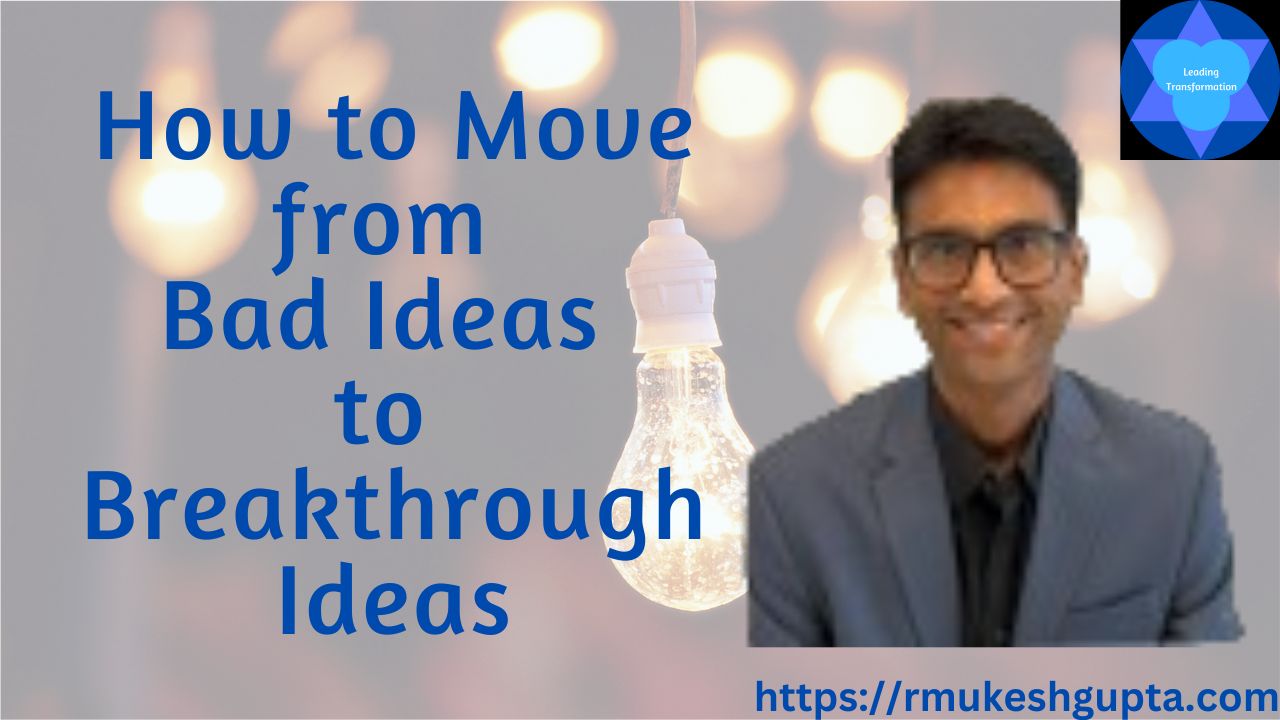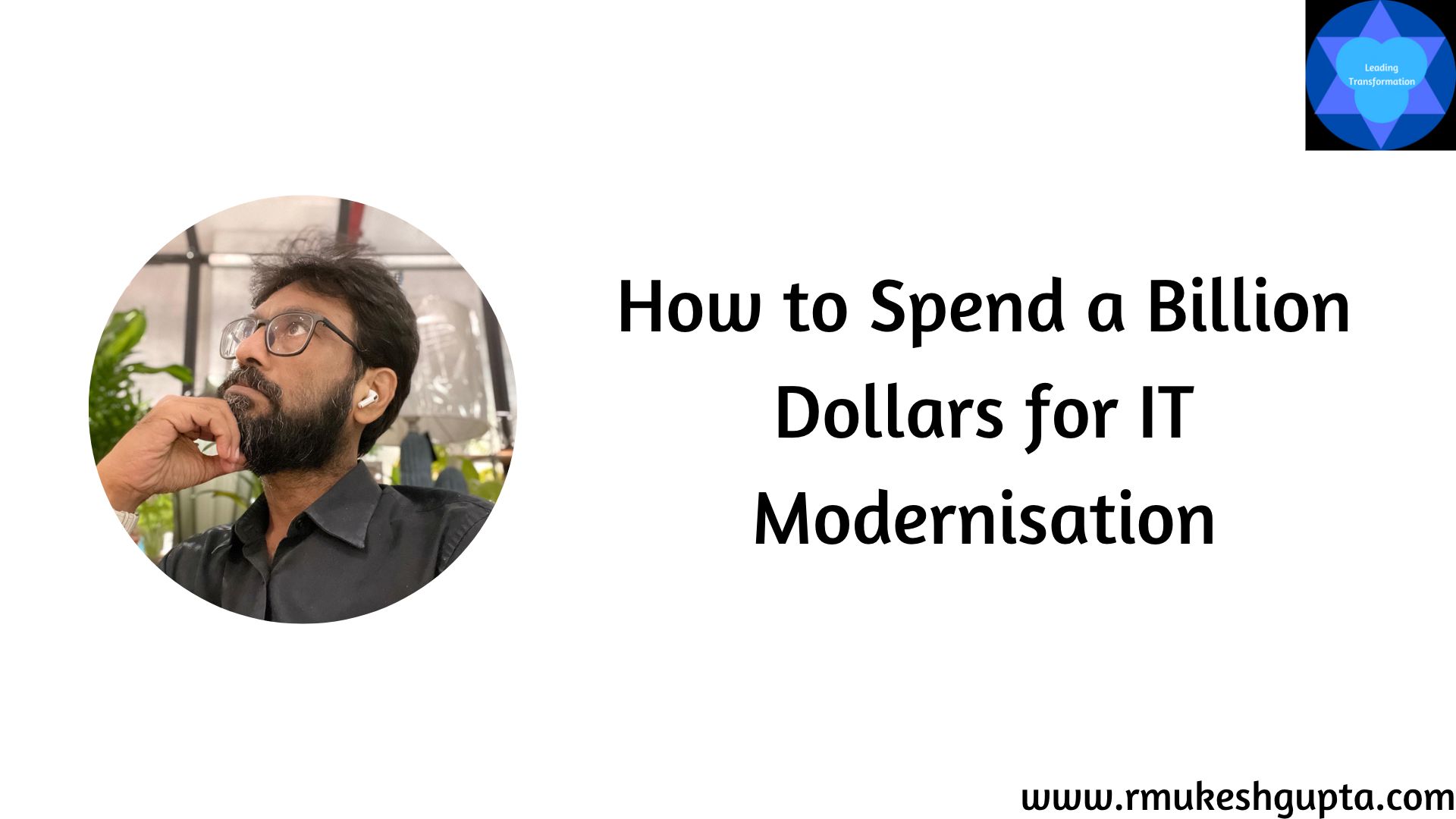4 Ways to Get Lucky by Mukesh Gupta
In an experiment, social scientist Richard Wiseman, placed advertisements in national newspapers and magazines, asking for people who felt consistently lucky or unlucky to contact him. Over the years, 400 extraordinary men and women volunteered for his research from all walks of life: the youngest is an 18-year-old student, the oldest an 84-year-old retired accountant.
He gave both lucky and unlucky people a newspaper, and asked them to look through it and count the number of photographs in the newspaper. On average, the unlucky people took about two minutes to count the photographs, whereas the lucky people took just seconds. Why?
Because the second page of the newspaper contained the message: “Stop counting. There are 43 photographs in this newspaper.” This message took up half of the page and was written in type that was more than 2 in high. It was staring everyone straight in the face, but the unlucky people tended to miss it and the lucky people tended to spot it.
For fun, he placed a second large message halfway through the newspaper: “Stop counting. Tell the experimenter you have seen this and win £250.” Again, the unlucky people missed the opportunity because they were still too busy looking for photographs.”
Research also reveals that unlucky people are on average more stressed out and are too narrowly focussed and hence miss chance opportunities. On the contrary, lucky people are open to new experiences and are generally less stressed out.
His research revealed that lucky people generate good fortune via four basic principles.
- They are skilled at creating and noticing chance opportunities,
- They make lucky decisions by listening to their intuition,
- They create self-fulfilling prophesies via positive expectations, and
- They adopt a resilient attitude that transforms bad luck into good.
Creating & Noticing Chance Opportunities:
One of the ways that one feels lucky is when you encounter and are able to create or notice opportunities that are hiding in plain sight, just like in the experiments conducted by Richard Wiseman.
There are ways that we can all try to be open to noticing these chance opportunities. In order to do so, we need to slow down in life to appreciate things around us.
- We need to be not just open to new experiences but maybe even seek new experiences.
- We need to be open to meeting new people, be curious about them and what they do, what their interests are.
- We need to be able to connect the dots when we see the dots.
- We need to help others without clear expectations of how we want to be helped back.
- We need to actively seek out variety in life (in what we read, in the people that we interact with, in the kind of work that we do, in the routes that we drive to and from office, in the way we entertain ourselves, in what we learn and how we learn). It is this variety, that increases the probability of having a chance encounter that can lead to a big opportunity.
So, someone who explores different routes to go to his office, instead of taking the same route or the person who decides that he will get to know everyone wearing a blue shirt in a networking event that he/she is attending or the person who will is willing to help out a colleague in a tough project, even though it is not part of his job – is more likely to be luckier than the rest of us.
Listening to Intuitions:
Eastern philosophies have always indicated that our intuitions are very powerful and need to be heeded. They are like plants, the more we listen and take care of our intuitions, the better they get and the more helpful they are. The kind of people who listen to their intuitions and are willing to try new stuff or go in a specific direction, just because their intuition says so, also tend to be more luckier.
I have personally experienced this in my life as well. When I don’t follow my initial intuition and want to take the safe and well-tested route, I tend to end up in places that have a much bigger probability of creating regret for me. Almost every time that I listen to and follow my intuition, I end up in a place or meet someone whom I would have never met otherwise.
I started my podcast, because I had a strong intuition that it would take me places that I would have never ventured otherwise. This one decision has helped me meet some really awesome people and get to know about their amazing work, which has in fact informed my work, helping me get much more creative and productive in my work.
Self-fulfilling Prophecies
Examples of self-fulfilling prophecies can be found in literature as far back as ancient Greece and ancient India, it is 20th-century sociologist Robert K. Merton who is credited with coining the expression “self-fulfilling prophecy” and formalising its structure and consequences.
In his 1948 article Self-Fulfilling Prophecy, Merton defines it in the following terms:
The self-fulfilling prophecy is, in the beginning, a false definition of the situation evoking a new behaviour which makes the original false conception come true. This specious validity of the self-fulfilling prophecy perpetuates a reign of error. For the prophet will cite the actual course of events as proof that he was right from the very beginning.[1]
In other words, a positive or negative prophecy, strongly held belief, or delusion—declared as truth when it is actually false—may sufficiently influence people so that their reactions ultimately fulfil the once-false prophecy.
Self-fulfilling prophecy are effects in behavioral confirmation effect, in which behaviour, influenced by expectations, causes those expectations to come true.
Another one of the eastern philosophical beliefs is that we get what we expect to get. This is also because we act in a way that we deserve what we expect to get. So, if we expect to be lucky, our mind will sub-consciously look at all the evidence that points to the fact that we are lucky.
I did try a crude experiment to see the validity of this effect. I used to drive my motor cycle until a few years back and when I first came across this piece of information, I decided to test it.
Before I left my home, I would tell myself that I am feeling lucky today and that most of the traffic lights that i encounter today will be green and I will not have to wait at these junctions. And I am surprised (and not so surprised) to report that my belief’s turn out to be true and on those days, I would feel that most of the traffic lights that I would encounter would be green and allow me to pass.
I got excited and shared this with my wife and she would make fun of me. Then I started showing this to her when I used to drive her with me and after many tries, she reluctantly agreed with me.
Even today, when I am running late and want to reach some place quicker than usual, I use this belief and I still believe that this still works for me.
Similarly, when I started my podcast, I told myself that I will reach out to 5 potential guests and even if 2 agreed to spend time with me, I will launch the podcast. So, I reached out to 5 people I looked up to and all five agreed to spend time with me for the show and that is how my podcast got launched. In fact, I had no idea about how to record the conversation, nor did i have any idea about how to edit or post these recordings on iTunes, when I recorded my first 5 conversations. I believed that i can figure it out and I did.
So, yes, I do think of myself as a very lucky 🙂
Resilience
This quality is both the easiest and the toughest. As people who are open to new experiences, as someone who is willing to go with our instincts and explore new territories, ideas and experiences, we are bound to fail and run into hardships. The people who think of themselves as lucky, know that this will happen. In fact, they might even expect this to happen from time to time.
However, what differentiates them to others is their belief that they can overcome any such failures or hardships that they fall into. This confidence and the ability to not only overcome failure/hardships but come out stronger because of that is what makes people think of themselves as lucky.
Resilience is like any other muscle. The more we exercise it, the stronger it gets and the more resilient we are, the more risks we are able to take and this again becomes a positive self-reinforcing loop.
Conclusion:
I believe that
Luck is a state of mind. You can decide to feel lucky or unlucky. We invent this state of mind and it becomes real for us.
So, as with most things in life, we need to work on the 4 principles and before that believe that we are special and are lucky. The way to build that belief is through the practice of gratitude. I am sure that each one of us can find at least 5 things that we are grateful for in our lives. As long as we recognise, believe and be thankful for these gifts in our lives, we will continue to strengthen our belief that we are indeed special and therefore are lucky.
Once that belief sets in, we start seeing all the different ways in which we are lucky.
So, lets start getting luckier.



